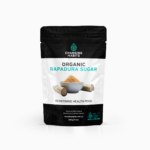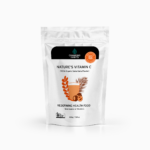A study just released in a Translational Psychology has found evidence that a mothers autoantibodies that interfere with fetal brain proteins during pregnancy may be responsible for around 25% of cases of autism ASD
The article is worth reading, I’ve copied it at pasted it at the bottom of this blog as well as the link to the research.
Autoimmune diseases are rising. If you have an autoimmune disease it means that your immune system doesn’t know friend from foe. It has begun to consume parts of your body; thyroid, heart, muscles, joints, pancreas, bones, brain nervous system and so on. Which organ or system your immune system attacks is dependent on individual variability.
There are 200+ autoimmune diseases that are perpetuated by the protein gluten or the subset gliadin. Coeliac disease was one of the first diseases that showed a particular food (gluten-gliadin) perpetuated the destruction of the intestinal wall by the immune system. Since that time we have discovered that food and other factors have the ability to change the perception of the immune system.
The suspected causes of autoimmunity that have been researched and written about are as follows; too many antibiotics, especially during pregnancy and infancy, environmental toxins, cord toxins, some vaccines, non breast feeding, diet, consumption of chemically hybridised wheat and other foods, heavy metals, GMO, meticulous hygiene and stress.
Now further research states that a mothers autoimmune disease is now linked to Autism. They have termed it ‘maternal autoantibody -related or MAR. The problem is that many young women don’t even know they have an autoimmune disease or MAR, many symptoms may not show up for years and even decades.
This is a frightening state of affairs, the research says that soon they will have test for women to indicate whether they have these autoantibodies. Until that test arrives I believe that we can try and help ourselves.
The answer is to prepare well for pregnancy, make sure you are informed about the triggers of autoimmunity which I’ve listed previously. Consume foods that are not triggers for autoimmunity (real food – no chemical hybrids), avoid toxins in your home and on your skin. Beware of your antibiotic consumption not only by prescription but in the meat and poultry you eat.
It’s getting harder and harder to have a healthy child due to the fact that we have removed ourselves from the natural order of life.
Article extracted from Medscape.
Maternal antibodies that interfere with fetal brain proteins during pregnancy may be responsible for roughly one quarter of cases of autism spectrum disorder (ASD), a new study suggests.
Lead researcher Judy Van de Water, PhD, and colleagues have coined the term “maternal autoantibody–related,” or MAR, autism for these cases.
“These findings are incredibly important because they establish a cause for a significant portion of autism cases, thereby opening up new lines of inquiry into possible biological treatments,” Leonard Abbeduto, PhD, director of the University of California, Davis, MIND Institute, in Sacramento, said in a statement. Dr. Abbeduto was not involved in the study.
“In addition, the findings demonstrate that a diagnostic test is within reach,” he said.
In an earlier study, Dr. Van de Water and colleagues discovered a group of autoantibodies that are common in mothers of children with ASD; women with these autoantibodies had a greater risk of having a child with ASD, and the presence of these antibodies was associated with a greater severity of ASD symptoms.
The researchers have now identified 7 specific target antigens that these autoantibodies bind to. Each antigen is highly expressed in the human fetal brain and has an established role in neurodevelopment.
The study was published online July 9 in Translational Psychiatry.
Critical Role in Brain Development
The antigens include the following: lactate dehydrogenase A and B (LDH), cypin, stress-induced phosphoprotein 1 (STIP1), collapsin response mediator proteins 1 and 2 (CRMP1, CRMP2), and Y-box-binding protein.
In 246 mothers of children with ASD and 149 mothers of typically developing children, maternal reactivity to any of these antigens, individually or in combination, was statistically significantly associated with having a child with ASD (odds ratio, 3.26; 95% confidence interval, 1.92 – 5.53), the researchers found.
Exclusive reactivity to specific antigen combinations was noted in 23% of mothers of children with ASD and in only 1% of mothers of typically developing children.
Behaviorally, the researchers found that children with ASD whose mothers have autoantibodies targeting a subset of these antigens had greater overall impairment compared with children with ASD whose mothers lack these particular antibodies.
This study, coupled with several prior studies, provides “compelling evidence” that placental transfer of maternal antibodies could alter fetal neurodevelopment and could play a role in autism, they note.
“Each of the target autoantigens…is known to have a critical role in the developing brain and interference with the level or function of more than one of them could act synergistically to change the trajectory of brain development,” the investigators write.
“The effect of MAR autoantibodies could occur through a direct antigen–antibody interaction, thereby either decreasing the abundance of or causing functional interference of the target proteins. Alternatively, the presence of these maternal antibodies may merely serve as a biomarker of cell destruction,” they point out.
Clinical Implications
Dr. Van de Water told Medscape Medical News that their new findings have potential implications for diagnosis and treatment.
“We can work toward the development of a clinical test to determine the risk of having a child with autism preconception or during the early postnatal period, which would be especially important in the high-risk population of those women who already have at least 1 child on the spectrum,” she said.
“It’s important to note that this would be a rule-in test, as a negative result would not necessarily mean that you would have a typically developing child, but if you are positive, your risk of having a child with ASD is greater than 99%,” she added.
“The second implication is that we can explore a target therapeutic approach in the future through a better understanding of the specific antibody targets,” Dr. Van de Water said.
She said her group is now working on identifying the specific sites on the protein targets that are recognized by the MAR antibodies (the epitopes), “which will allow us to build a more specific animal model. We will use this model to determine the mechanism through which these antibodies affect neurodevelopment, or their true pathologic significance.”
The study was funded by the National Institute of Environmental Health Sciences, the US Environmental Protection Agency, the UC Davis MIND Institute, and Autism Speaks. Dr. Van de Water and a fellow author have a patent on the proteins described in the study. Dr. Van de Water is a consultant for Pediatric Bioscience, a company that has licensed this technology from UC Davis.
Transl Psychiatry. Published online July 9 2013, Full Article in Nature . http://www.nature.com/tp/journal/v3/n7/full/tp201350a.html







0 Comments